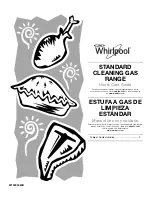
Heat
7
1.3 Experiment 3
How does a thermometer function?
The thermometer without graduation is alternately dipped into the beakers
containing water at different temperatures.
The thermometer functions in the same way as the equipment set up in
experiments 1 and 2:
when it is heated the alcohol in the thermometer
expands, and it contracts as it cools
.
Materials:
1 thermometer without graduation (4)
2 plastic beakers (9)
Additionally:
1 thermos flask containing hot water, 1 thermos flask contain-
ing ice cold water
1.4 Experiment 4
What is a thermometer for?
Fill the beakers with water at varying temperatures: approx. 55 °C, 25 °C
and ice cold. Test the temperature by placing your hand in it.
Water at 25 °C feels cold if your hand has previously been held in hot water.
However, if you first place your hand in cold water and then in water at
25 °C, the water feels warm.
If a thermometer is used to measure the temperature it will always indicate
the same temperature in the lukewarm water, regardless of whether it has
been held in hot or cold water beforehand. Therefore,
thermometers have
to be used for exact temperature measurements
.
Materials:
1 thermometer, –3 °C to +103 °C (5)
3 insulating cases for beaker (8)
3 plastic beakers (9)
Additionally:
1 thermos flask containing hot water, 1 thermos flask contain-
ing ice cold water, tap water
1.5 Experiment 5
The Celsius scale
The Celsius scale is defined between two specific temperatures, the melting
point of ice (0 °C) and the boiling point of water (100 °C).
On a thermometer without graduation these two temperature points can
be determined as follows: The teacher fills a large heat-resistant beaker with
water. An immersion heater is used to bring the water to boil.
(Never use
the heater without any water!)
Each group places the thermometer without graduation into the boiling
water and waits until the liquid in the thermometer stops rising. This point
is to be marked with a red peg.
Then the pupils fill the plastic beaker with water and ice cubes. They place
the thermometer in the water and wait until the liquid in it stops moving.
This point is to be marked with a blue peg.
Summary of Contents for 31799
Page 1: ...Lehrerheft zur Experimentierbox Experiment description Manual Heat With work sheet ...
Page 2: ...Heat 2 2 ...
Page 5: ...Heat 5 Storage plan ...
Page 15: ......


































